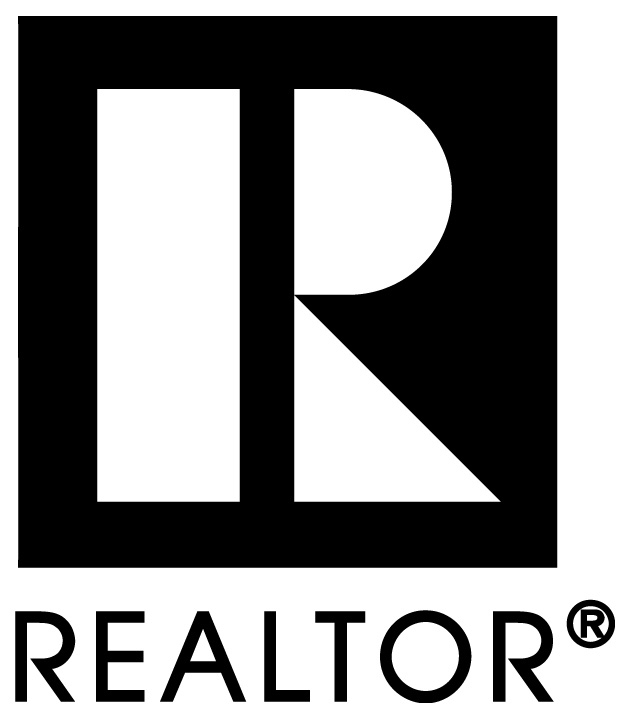Addendum – A separate document that is an addition to a completed written document.
Adjustable Rate Mortgage – A loan where the interest rate is periodically adjusted up or down, depending on a specified financial index.
Appraisal – An expert opinion of value of a property based upon factual analysis.
Annual Percentage Rate (A.P.R.) – The actual finance charge for a loan, as expressed by the actual rate of interest paid. The APR includes points and fees. The APR is disclosed as a requirement of federal truth in lending statutes.
Assumption of Mortgage – Agreement by a buyer to assume the liability for an existing mortgage. The lender usually must approve the new debtor in order to release the existing debtor (usually the seller) from liability.
Beneficiary – In states in which deeds of trust are commonly used instead of mortgages (like Virginia), the lender (mortgagee) is called the beneficiary.
CC&R’s – Covenants, Conditions, and Restrictions. A term used to describe the restrictive limitations which may be placed on a property in a deed. Often seen in Homeowner Associations.
Chain of Title – A chronological listing of all owners of a property.
Closing (also known as “Settlement”) – The final step in executing a real estate transaction. It takes place on a specified date and time during which all parties meet at a settlement company presided over by a lawyer or settlement agent. At that time the exchange of property for money takes place.
Cloud on Title – An actual or apparent claim on the title to real property. The “cloud” may be removed by quitclaim deed, or, if necessary, by court action. Title companies will refuse to insure title transferred with a “cloud,” or they will insure ownership except for (“insure around”) the “cloud.”
Comparable Sales – Sales of properties used as comparisons to determine the value of a specific property.
Contract – A binding legal agreement between a buyer and seller of real property, setting forth the terms and conditions of the sale.
Conveyance – Transfer of title to a property.
Counter-Offer – A response to an offer. For example: A offers to buy B’s house for X dollars. B, in response, offers to sell to A at a higher price. B’s offer to A is a counter offer.
Deed – A legal document that formally conveys ownership of property from a seller to a buyer.
Deed of Trust – An instrument used in many states in place of a mortgage (like Virginia). Property is transferred to a trustee by the borrower (trustor), in favor of the lender (beneficiary), and reconveyed upon payment in full.
Disclosure – To make something known.
Discount Points (aka “Points”) – Discount points are up-front interest charges to reduce the interest rate on the loan over the term of the loan. Each point equals one percent of the face value of the loan.
Down Payment – The percentage of the purchase price that the buyer is paying in cash.
Due on Sale Clause – An acceleration clause that requires full payment of a mortgage or deed of trust balance when the secured property changes ownership.
Earnest Money Deposit – A deposit given by the buyer when the sales contract is signed. Also called “good faith money.” The earnest money deposit is held in escrow until settlement and then shown as a credit to the buyer.
Easement – A right of use over the property of another.
Escrow – A fund or account held by a third party custodian until conditions of a contract are met.
Equity – The value of a property actually owned by the homeowner; purchase price plus appreciation plus improvements less mortgages and liens.
Federal Home Loan Mortgage Corporation (“Freddie Mac” and Federal National Mortgage Association (FNMA, called “Fannie Mae”) – Privately owned corporations created by Congress that buy mortgage notes from local lenders and are responsible for the guidelines a majority of lenders use to qualify borrowers.
Finance Charge – The total cost, including all fees, points and interest paymnets a borrower pays to obtain a loan.
Fixed Rate Mortgage – A loan where the rate stays constant throughout the entire life of the loan.
Hazard Insurance – Insurance protecting against specific hazards such as fire or wind. More complete coverage is obtained with an all-risk homeowner’s insurance policy.
Homeowners Association – The legal entity created by a real estate developer for the purpose of developing, managing and selling a community of homes. It is given the authority
to enforce the covenants, conditions, and restrictions (CC&Rs) and to manage the common amenities of the development.
HUD-1 – A statement showing the breakdown of the financial details of a sale of property for all parties.
Lien – An encumbrance against a property for the repayment of a debt. Examples include judgments, taxes, mortgages and deeds of trust.
Market Value – The price that a willing buyer will pay and willing seller will accept for a property.
Market Price – The actual price at which a property is sold.
Metropolitan Regional Information System (MRIS) – The multiple listing service used by real estate agents in the greater D.C. area.
Mortgage – A security claim by a lender against a property until the debt is paid.
Mortgage Insurance – An insurance policy written by an independent mortgage insurance company which compensates lenders or investors for losses due to the default of a mortgage loan.
PITI – Principal, interest, taxes and insurance that forms the basis for monthly mortgage payments.
Power of Attorney – A legal document by which one person (the principal) gives another person (the agent or attorney in fact) the authority to act for him/her.
Principal – (1) One of the parties to a contract; (2) the amount of money borrowed for which interest in charged (3) a person who creates a power of attorney.
Prorate – To divide or assess proportionately.
Quitclaim Deed – A deed by which a person (the “grantor”) disclaims any interest the grantor may have in a piece of real property and transfers that interest to another person the (“grantee”).
Realtor – A member of the National Association of Realtors.
Recording – Filing documents affecting real property with the City or County as a matter of public record.
RESPA Statement (also known as “HUD-1”) – A statement showing the breakdown of the financial details of a sale of property for all parties.
Right of Survivorship – An operation of law that passes a deceased’s interest in property to the other joint tenant(s).
Settlement (also known as “Closing”) – The final step in executing a real estate transaction. It takes place on a specified date and time during which all parties meet at a settlement company presided over by a lawyer or settlement agent. At that time the exchange of property for money takes place.
Subdivision – The division of one parcel of land into smaller parcels (lots) created by filing a subdivision plat with the governmental authority (city or county) and receiving approval from the governmental authority.
Title – The bundle of rights in a piece of property a party may own.
Title Insurance – Insurance policy that protects against loss from defects in title.
Title Search – A detailed examination of the chain of title of a property to answer three basic questions: (1) does the seller have a marketable interest in the property; (2) what kind of restrictions or allowances pertain to the use of the land and (3) do any liens exist on the property which need to be paid off at closing?
Type of Ownership – There are four types of ownership:
- Sole Ownership – Only one person owns the property.
- Tenants in Common – Two or more persons have an undivided ownership interest in the property. The percentage of ownership need not be equal; each party has a right to sell his/her interest and upon the death of any owner, that owner’s interest goes as the deceased directed in his/her will.
- Joint Tenants – Ownership taken by two or more persons at the same time in equal percentages with an undivided right to possession, with right of survivorship.
- Tenants by the Entireties – Owners are husband and wife; each with right of survivorship.
Unreleased Trust – A mortgage or lien recorded in the Court records that appears to be outstanding (where no Certificate of Satisfaction/release has been recorded).
1031 Exchange – A tax deferred or 1031 exchange is a transfer of investment or income property and for a different income or investment property. When certain criteria are met, as set forth in section 1031 of the Internal Revenue Code, income taxes on any gain realized from the sale of the relinquished property are deferred.





